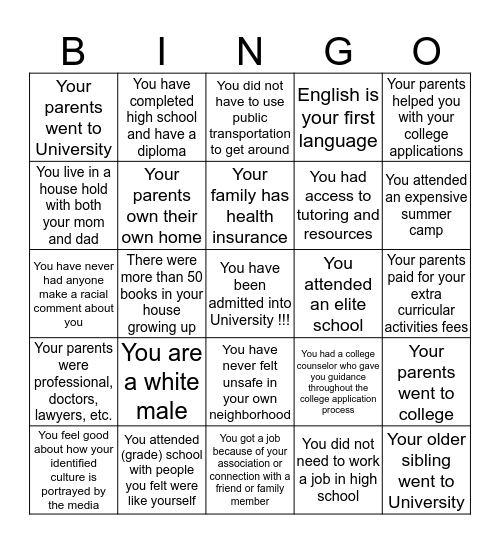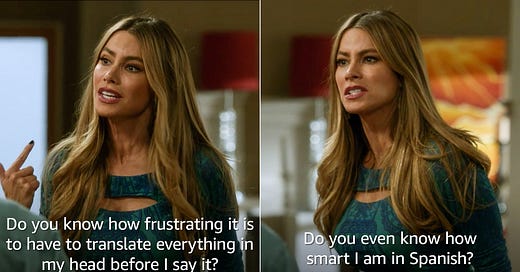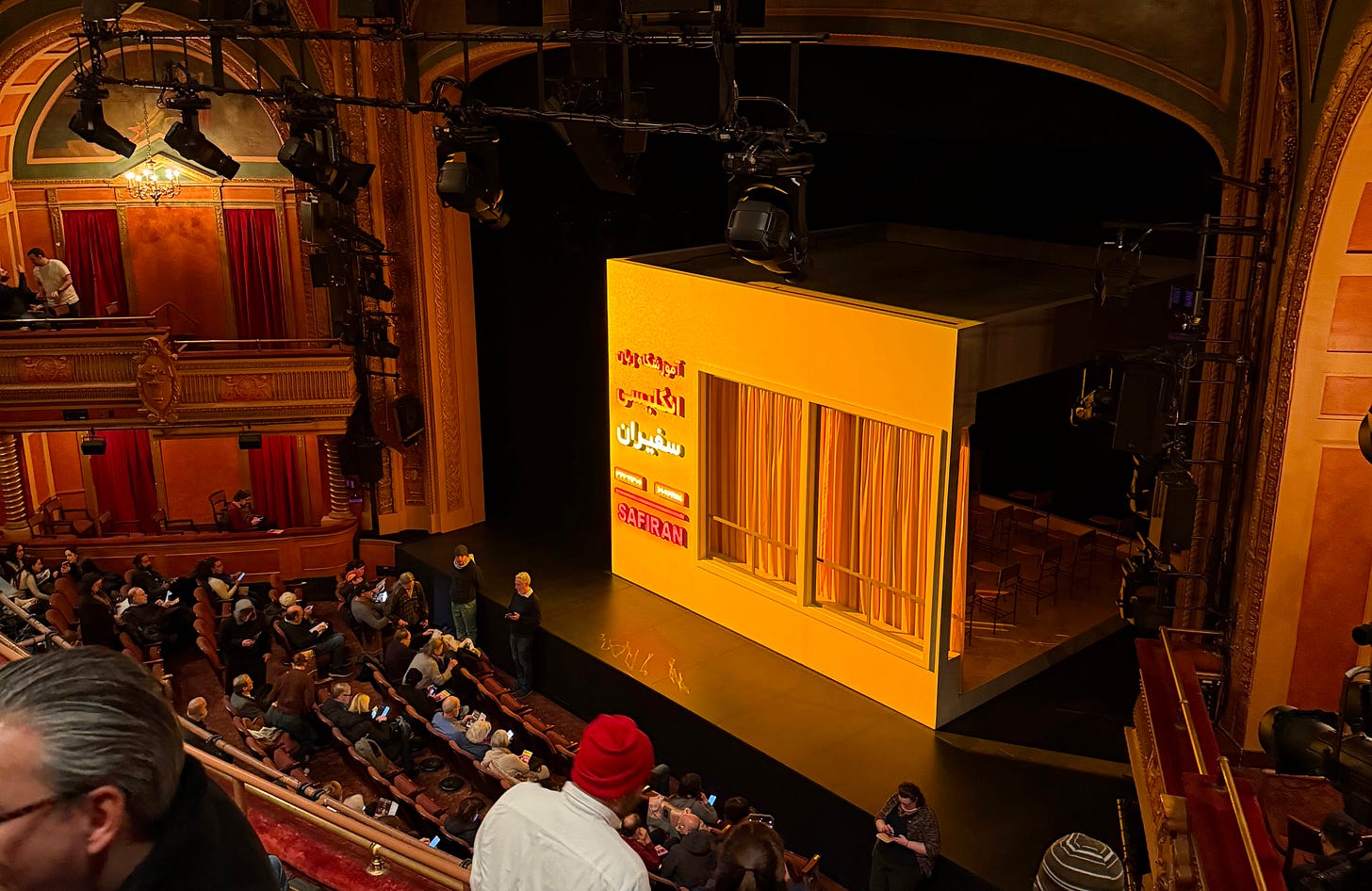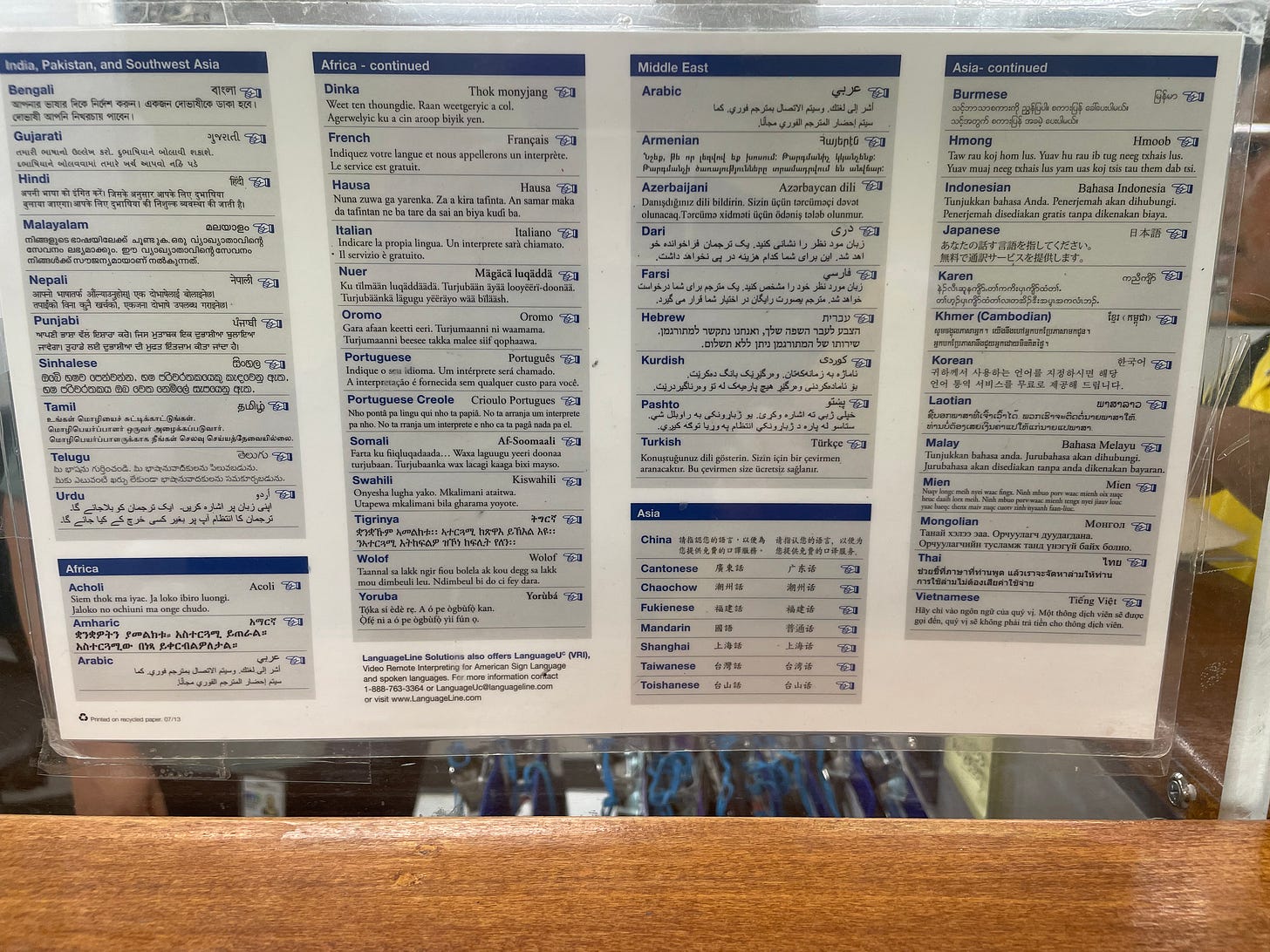English as the Official Language... Of Power
The deep grief of knowing that your mother tongue isn't enough; thoughts on the new executive order, Zelensky, and English, a play by Sanaz Toossi
I’m the daughter of not just one, but two English teachers. My mother was a teachers’ trainer for Sesame Street English and still teaches children’s English several times a week; my father taught phonetics at a private university in Taipei until his retirement. I have a master’s degree in interpreting. I write essays and do stand-up in English. English has always been an integral part of who I am, but it took me years to fully appreciate the privilege its provided me.

Being able to speak English fluently with a pronounced American accent (as I’ve mentioned before, people often compliment me by saying I have “no accent.” But an American accent is an accent. It’s just a privileged one) has opened countless doors for me. I’ve been able to travel more easily, been accepted into foreign exchange programs three separate times, been hired by multinational companies like Disney, LEGO, and Gensler, made friends with people from around the world, and enjoyed a wide variety of arts from Broadway plays to comedy rap battles all thanks to this one extraordinary gift.
So when I heard about English, the Pulitzer Prize winning play that just closed on Broadway, I knew I would love it. It’s set in an English as a second language classroom in Iran, where 4 adult students are preparing for the TOEFL (Test of English as a Foreign Language).
The set is a simple, rotating classroom filled with mundane school house objects like a white board, a projector, and those awkward desk-chairs that you always have to wiggle into. The five actors in the cast all have different, complicated relationships with the English language. One is a grandmother who’s learning English so she can speak to her Iranian-Canadian granddaughter. One is a high school student preparing to study abroad. One is an English teacher with near-perfect fluency who returned to Iran after years in Manchester. One is a medical student tackling the TOEFL after several failed attempts. And one is a dude whose English is almost too good for him to be in the class at all.
Learning changes you, but I’d argue no other type of learning changes you as much as acquiring a different language. It affects how you think, how you frame your thoughts, what media you’re able to consume, and grants you access to people and places that are otherwise outside of your reach. Your life gets bigger when you speak more than one language, your thinking becomes more diverse.
Speaking a different language shifts your identity. In the play, Marjan the English teacher said when you learn English, “you go years without making anyone laugh.” People don’t know the whole you, just the struggling, stumbling version of you.
And there’s a difference. Native English speakers learn new languages for fun. Non-native speakers learn English to survive and thrive. English is the lingua franca for international business, academia, medicine, technology, and diplomacy. One notable example is Ukrainian President Volodymyr Zelensky, who's had to improve his English, his third language, after Ukrainian and Russian, dramatically over the past 3 years to make sure that he and his people can be heard by the international community. On a laughably smaller scale, I’ve tried my best to use my English fluency to highlight cross strait tensions with China and promote Taiwan’s best interests in my writing and comedy.
Zelensky still got shouted down in the Oval Office. Airlines still often list Taiwan as “province of China” in the drop-down menu. Because English fluency, while a requirement to play in the great American game, only gives you access to power, not actual power.
English the play conveyed something I had long felt but never found the words for: the deep grief of knowing that your mother tongue isn’t enough.
English the play conveyed something I had long felt but never found the words for: the deep grief of knowing that your mother tongue isn’t enough.
When I heard that Trump has signed yet another Executive Order (someone please turn off his TV and take away his Sharpie) to designate English as the official language, I sighed.
I’ve mastered the English language to the point where I’ve been published in the newspaper of record and I regularly make people laugh. So why should I worry?
Because I once worked as an intern at a medical conference in Taipei where doctors from South Korea, Japan, and Taiwan consistently apologized for their “poor English” as they presented cutting-edge research that they wrote and published in English. And then I watched the native English speakers talk over them and dominate the panel discussion.
Because I worked for multinationals in China and Taiwan where the presence of one single English speaker meant the entire meeting room switched to English, and watched my usually quick-witted and competent colleagues wither and grow silent.
Because I’ve heard countless dear friends living in Taiwan or China complain when an event we were attending (in a Mandarin-speaking country that they were living in) “should have been more accessible” with English translation and interpretation, which I often voluntarily provided for free. Many of these friends were not actively studying Chinese at all.
Native English speakers already have so much power, but like I did for years, they don’t realize what a privilege it is.
English as the official language erects an invisible wall, denying countless people in America access to medical treatment, government assistance, and other opportunities.
English as the official language erects an invisible wall, denying countless people in America access to medical treatment, government assistance, and other opportunities.
In an ideal world, AI will become good enough already for my translation and interpretation service to be obsolete. Anyone with a smartphone should be able to participate in a conversation no matter what language it’s happening in.
I would love to be replaced by robots sooner rather than later. Maybe then everyone will have a chance to be listened to and understood as their whole selves.







Loved this essay!!!